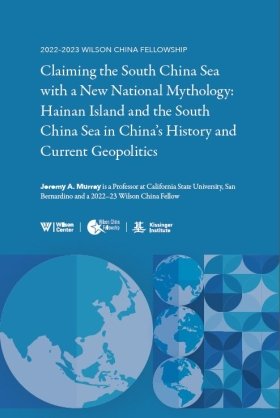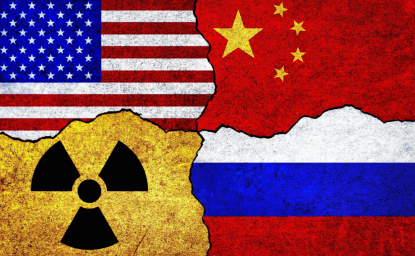Claiming the South China Sea with a New National Mythology: Hainan Island and the South China Sea in China’s History and Current Geopolitics


This paper examines the shifting histories of the relationship between mainland Chinese regimes and their southern coast, Hainan Island, and the South China Sea. While Beijing today claims that Chinese regimes have administered the South China Sea in some form for 2,000 years, from the perspective of successive dynasties’ centers of power, the far regions of the Sea were in fact culturally alien territory, and often far beyond their administrative control. When we examine the South China Sea from the perspective of the Hainanese people, not to mention that of China’s neighbors around the Sea, the mainland myth of continuous administrative control and Chinese cultural presence quickly breaks down. It is important, in a scholarly context, to counter this mainland mythology of continuous Chinese dominance in the region, and also present a version of this history that reflects the region’s reality, diversity, and complexity. The People’s Republic of China’s (PRC) current narrative of the South China Sea, embodied by the “nine-dash line” maritime boundary, is a retroactively imposed cultural lineage within the region, not a story of real political control through the imperial past. Past narratives, and the current one, embody a range of the regimes’ anxieties and ambitions, and while they may be disingenuous, we can and must still learn much from them. Rather than confronting these claims’ historical veracity directly in a political context, however, the United States should continue to articulate its firm support of a rules-based international order, particularly through the United Nations Convention on the Law of the Sea (UNCLOS), and the legal claims of other regional players. Washington’s failure to formally accede to this framework prevents the US from ensuring that it will have a hand in shaping a stable and peaceful future for the South China Sea, and an equitable and sustainable future for other regions, including the Arctic and Antarctic polar regions. Through ratification of UNCLOS and more robust support for the claims and interests of other regional players—such as the Philippines, Vietnam, Taiwan, Indonesia, and others—Washington could more effectively, safely, and sustainably counter Beijing’s unilateral and ahistorical claims to the South China Sea.
Author

Professor of History at California State University, San Bernardino

Kissinger Institute on China and the United States
The Kissinger Institute works to ensure that China policy serves American long-term interests and is founded in understanding of historical and cultural factors in bilateral relations and in accurate assessment of the aspirations of China’s government and people. Read more

Explore More
Browse Insights & Analysis
US Inaction Is Ceding the Global Nuclear Market to China and Russia

360° View of How Southeast Asia Can Attract More FDI in Chips and AI



